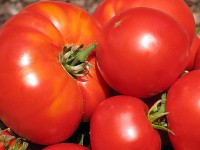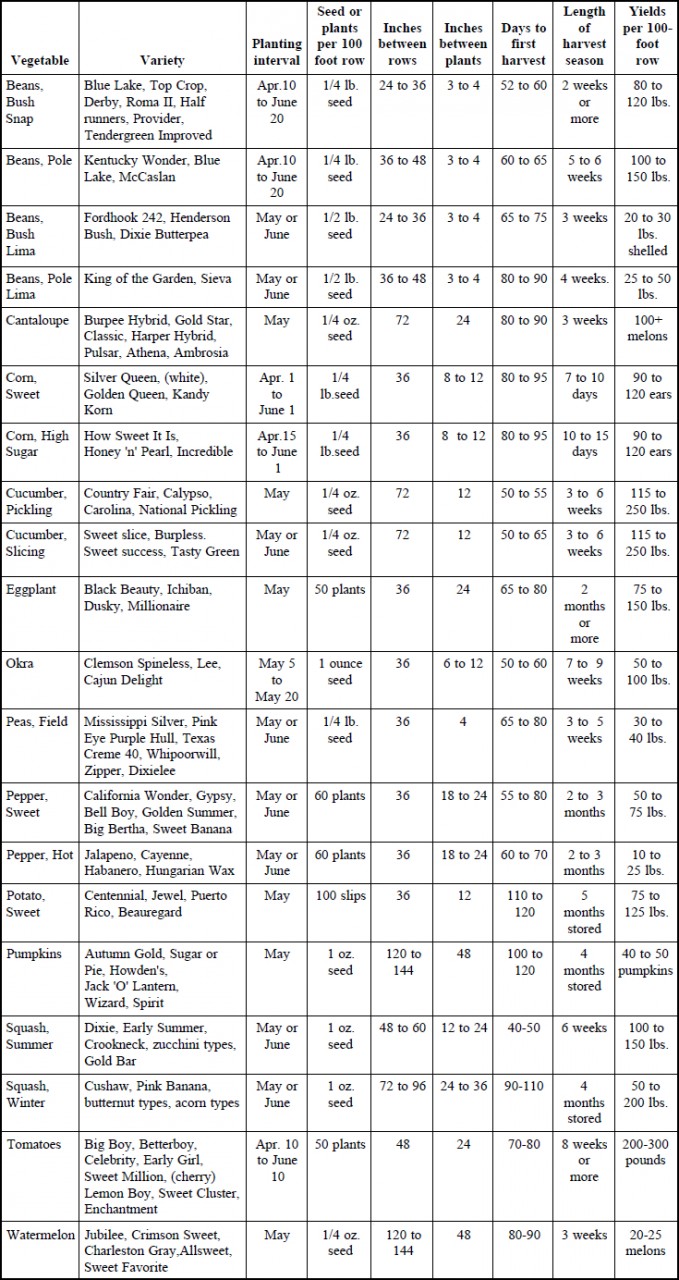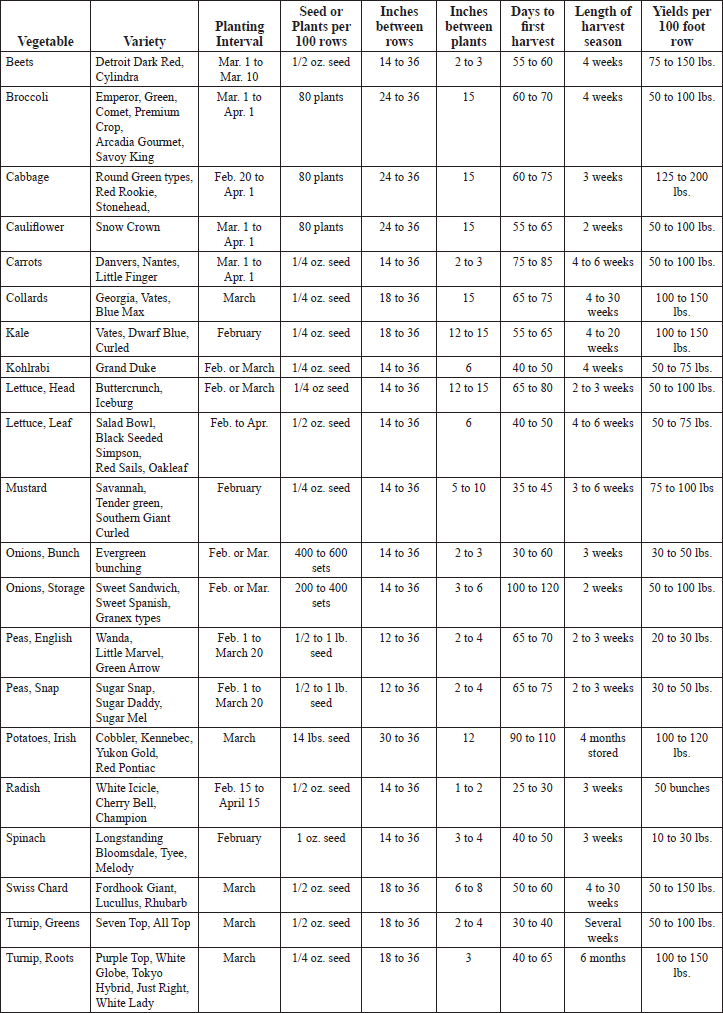 With the spell of warm weather we have had this spring; it’s very difficult to resist the temptation to get everything into the ground.
With the spell of warm weather we have had this spring; it’s very difficult to resist the temptation to get everything into the ground.
Warm-season vegetables such as tomatoes, peppers, eggplant, squash and melons can suffer greatly, if air temperatures drop below 50 degrees, unless you’ve protected the transplants with cloches or some other plant-protection device. Even when protected from cool air temperature the roots are still down in the wet, cold soil and this can lead to diseases, especially bacterial diseases in peppers.
Cool-season vegetables such as salad greens, peas, onions and popular cole crops such as cabbage, cauliflower and broccoli can tolerate temperatures slightly below freezing. So, plant all the cool-season crops that you want but wait until after April 25th to plant warm season vegetables!
The winter of 2011-2012 has been strangely familiar to the pattern seen in 2007. Let’s hope Mother Nature stays in a good mood and does not throw us into the deep freeze in the midst of our spring fever!
According to the article on Dave’s Garden website, Let Your Garden Tell You When to Plant:
- When forsythia blooms, it’s time to plant the seeds of alyssum, carrots, cornflower, peas, poppies, and radishes.
- When cherry trees and flowering quince bloom, it’s time to plant broccoli, cabbage, cauliflower, larkspur, onion, pansy, and snapdragon.
- When lilacs are in full bloom (as they are in our garden right now), it’s time to plant the seeds of beans, corn, cucumber, marigolds, morning glory, nasturtium, petunias, squash, sunflower, and zinnias.
- When bridal veil (Spirea vanhouttei) and wild cherry trees bloom, it’s generally safe to assume that the last frost of spring has passed.
Tomatoes
 So, you’re thinking about those fresh tomatoes and how good they taste straight from the vine, right? What kind of tomatoes do you want to plant? Well, the first thing to think about is what are you going to do with them and how many plants do you need? A general rule of thumb for tomatoes is plant two plants for each person in your family to eat all the fresh tomatoes you can stand! Plant four tomatoes per person to provide both fresh and canned tomatoes for your family. So, what is your goal? Fresh, frozen or canned?
So, you’re thinking about those fresh tomatoes and how good they taste straight from the vine, right? What kind of tomatoes do you want to plant? Well, the first thing to think about is what are you going to do with them and how many plants do you need? A general rule of thumb for tomatoes is plant two plants for each person in your family to eat all the fresh tomatoes you can stand! Plant four tomatoes per person to provide both fresh and canned tomatoes for your family. So, what is your goal? Fresh, frozen or canned?
Celebrity is an all-purpose variety of tomato that can be used fresh as a slicer, in salads or making sauces and salsa as well as preserving. This variety of tomato produces a medium sized fruit (about 7 – 8 oz.) which is firm, has very few seeds and has excellent flavor. Celebrity is an indeterminate variety which means it will keep producing throughout the season. Indeterminate varieties of tomatoes are also called “vining” tomatoes. They will grow and produce fruit until killed by frost and can reach heights of up to 10 feet although 6 feet is considered the norm. They will bloom, set new fruit and ripen fruit all at the same time throughout the growing season.
Bush Goliath is a variety specially bred for containers or patio gardens. The compact plants grow to about 3 ½ feet tall and produce bright red, sweet fruit. Staking or caging is recommended as the vines will become heavy with fruit. Determinate varieties of tomatoes, also called “bush” tomatoes, are varieties that are bred to grow to a compact height (approx. 4 feet). They stop growing when fruit sets on the terminal or top bud, ripen their entire crop at or near the same time (usually over a 2 week period), and then die.
Early Girl is another popular variety as it flowers and fruits early in the season. Early Girl is one of the first varieties of the season to provide tasty, full-size fruit. Best used fresh for slicing or in salads and is a rigorous indeterminate variety which will produce fruit up until first frost. Substantial caging and/or staking for support and pruning is recommended.
Roma tomatoes are the classic paste tomatoes. The fruit is oval-shaped, fleshy and has very few seeds making it an excellent choice for canning. Roma’s are determinate varieties and many people like the fact that they will be able to harvest most all of them at once and can them.
Variety Selection
More information on variety selection may be found on these websites
- http://homegrown-harvest.com/tomatoes.html
- http://www.ehow.com/info_7969911_tomato-varieties-tennessee.html
Home Vegetable Gardening
 Join Robert Norris, Associate Professor and Associate Botanist at UC Davis, as he discusses home vegetable gardening. Topics include tools needed, recommended reading, ground preparation, planting dates, selection of varieties, and seed planting depths.
Join Robert Norris, Associate Professor and Associate Botanist at UC Davis, as he discusses home vegetable gardening. Topics include tools needed, recommended reading, ground preparation, planting dates, selection of varieties, and seed planting depths.
Editor’s Note: some information given during the following two videos may need to be adjusted for Tennessee gardening.
Part 1
[youtube]http://www.youtube.com/watch?v=_wZes0AnFKA[/youtube]
Part 2
[youtube]http://www.youtube.com/watch?v=FYAO5R9_Lsw[/youtube]
Canning, Freezing and Preserving Vegetables
Information on canning, freezing and preserving vegetables can be found at
- https://utextension.tennessee.edu/publications/Documents/PB1483.pdf
- https://utextension.tennessee.edu/publications/Documents/PB724.pdf
General Gardening Information
- https://utextension.tennessee.edu/publications/Pages/default.aspx
Tennessee Planting Schedule
Warm Season Garden Vegetables
Spring Planted Cool Season Garden Vegetables
In the spring, at the end of the day, you should smell like dirt.–Margaret Atwood




